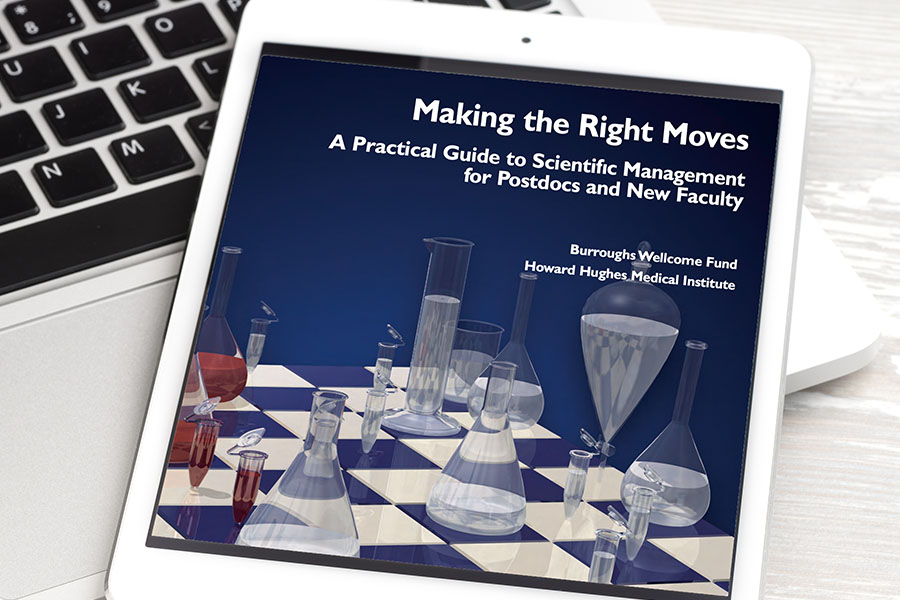Mentor Information
A high-quality postdoctoral training experience depends upon a realistic and productive relationship between a postdoctoral scholar and a mentor. UNMC is committed to facilitating such relationships by offering the highest levels of structural oversight, training, and supplemental workshops and seminars.
- Assist the postdoc in establishing a list of expectations and goals that are in place at the outset of the postdoctoral training.
- Provide the facilities, resources and guidance the postdoc needs to achieve those goals.
- Guide the scholar in manuscript preparation, submission requirements and presentation of scientific research.
- Ensure timely submission of the scholar’s research for publication/presentation and that they gets appropriate credit.
- Provide regular feedback and evaluations on the postdoc's research work and career development, including a formal annual performance review through UNeVal.
- Ensures that a scholar attends orientation and mandatory training (IDP, CITI and RCR workshop) in their first year.
- Supports their attendance at career development workshops and seminars (such as grant-writing workshops, placement workshops and workshops to improve scientific writing and presentation).
- Supports the scholar's completion of our postdoct certificate programs.
Key Components to a Good Mentoring Experience
Frequent communication helps prevent problems from growing into grievances. Patience is required, as well as discernment: One postdoc might need regular, detailed instructions; another might need only to hear, “Do what excites you.” Early discussions should include the extent to which the postdoc can expect to take ownership of a project and plan on continuing the research after the postdoctoral appointment.
Regular weekly or biweekly meetings can help maintain communication. Meetings and other forms of communication are indispensable in establishing and maintaining the foundation for a mentoring relationship.
In return for the postdoc's contributions, you will guide the postdoc toward becoming a better researcher. Most postdocs need such guidance, especially in the early months to avoid wasting time. They don't, however, need micromanaging; the adviser's goal is to allow the postdoc to grow toward independence and a relationship that becomes a collaborative one.
As postdocs gain independence, they must learn to answer important questions: What distinguishes an important research problem from a routine one? What strategies are most likely to succeed? How much time will be needed to answer a question?
Evaluations are useful only if they are honest. Good work should be acknowledged and rewarded; less-than-good work should receive equally frank appraisal. No one's interests are served by allowing a subpar performance to continue indefinitely in order to avoid an unwelcome evaluation. On the other hand, evaluations should be constructive, not punitive.
The objective of regular evaluations is to identify weaknesses or problems, to create plans to address them, and ultimately to raise the level of performance and eventually the success of the individual. Evaluations need not be time-consuming. Brief, regular meetings can form a basis for useful feedback, suggestions for improvement, and performance assessments. Written progress reports (for example after the first 6 months and then annually) are needed to clarify performance for the postdoc, the institution, the funding organization and potential employers. A record of evaluations is especially important for reappointment or to find another job.
The advisor should take the lead in discussing ethical standards early and often, especially with new postdocs and with postdocs from countries where standards may differ. Authorship especially carries a great potential for misunderstandings. A good policy is for the advisor and postdoc to discuss the authorship policy early. Other issues that should be discussed include plagiarism, public presentation of results and the integrity of data.
Given the importance of responsible conduct to both the research enterprise and the careers of individual researchers, a mentor should ensure that postdocs are instructed about any ethical issues of relevance to a particular program. Such issues may include data management, the use of human subjects, experiments on animals, conflicts of interest, resolving ethical dilemmas, whistle blowing and handling research sponsored by a for-profit entity.
A mismatch could be due to many reasons and may lead to a conflict of expectations and thus distract both the postdoc and the mentor from achieving their goals. There could be a mismatch of expertise or enthusiasm for the project or the lab culture. Most of the time this can be discovered early, within six months. In such cases it is advisable to have a face-to-face meeting as early as possible. A discussion can lead to resolution of issues. If not, both the postdoc and scholar should draw a plan for amicable separation. The postdoc should be allowed to look for another position, and if possible, be helped by the mentor. While seeking a new position, the postdoc should not ignore the research they are involved in.
A dispute could occur for many reasons such as authorship issues and may turn out to be disruptive for the postdoc and mentor in achieving their goals. The sooner these issues are resolved the better. Because of their position of power, mentors have the larger responsibility in resolving disputes. When an impasse develops, the advisor (or postdoc) should not hesitate to ask a neutral party to help resolve the issue. If the impasse persists, the postdoc can approach the Office of Postdoctoral Education for grievance resolution.
Online Resources for Scientific Researchers

Making the Right Moves: A Practical Guide to Scientific Management for Postdocs and New Faculty
This free ebook from Howard Hughes Medical Institute is a collection of practical advice from experienced researchers and faculty and includes key insights on leadership, getting funded, project management, and teaching and course design.